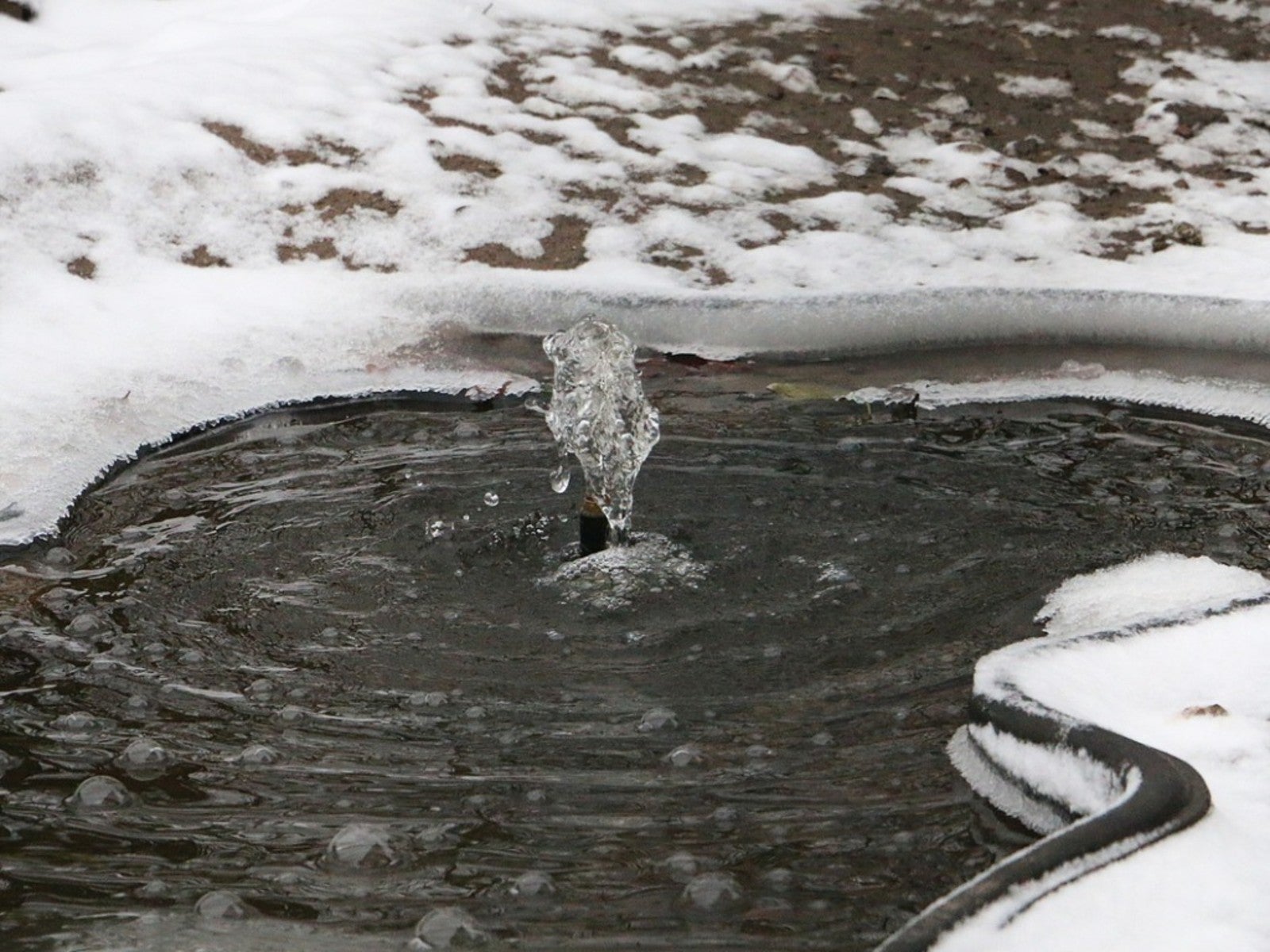
Water gardens add a unique aspect to the home landscape and are becoming increasingly popular. If it is functioning properly, water gardens need little maintenance during the growing season. However, as soon as fall rolls around, it's time for some winter pond care.
Overwintering Garden Ponds
The first order of business when preparing backyard ponds for winter is sanitation. This means removing any fallen leaves, twigs or other detritus from the pond. This prevents any injury to fish, if you have them, and will give you a head start on spring clean out. Too many decomposing leaves can lead to an altered pH and briny water. Most ponds don't require a water change, but if the pond has an inch (2.5 cm.) or more of silt, the entire pond needs to be cleaned. To clean the pond, remove some of the pond water (about one-third) and place it and fish in a holding tank. Drain the water from the tank and remove the plants. Scrub the floor of the pond with a stiff brush and water, but leave the algae on the sides of the pool. Rinse, re-drain, and then fill the pond with fresh water. Let sit to allow the chlorine to evaporate and the temp to stabilize, then add the holding tank of old pond water and fish. Either divide and repot any plants that require it and put back in pool or cover as discussed below and move to a frost free area. When temperatures drop below 60 degrees F. (16 C.), stop watering the plants in water gardens over winter and fall. As leaves of hardy plants die back, snip them off at the crown and lower the plants to the bottom of the pool when overwintering garden ponds. They will survive there; although if a hard freeze is likely, you may want to move them to a sheltered area, covered with moist newspaper or peat and plastic to retain moisture. Floating plants, like water hyacinth and water lettuce, should be removed and tossed out. Overwintering tender garden pond plants may occur in several ways. Non-hardy plant specimens, such as tropical water lilies, can be moved out of the backyard pond in winter and into a greenhouse or under artificial lights for 12 to 18 hours with a water temp of around 70 degrees F. (21 C.) Or, they may be stored as a dormant tuber. Quit fertilizing in August to allow the lily to form a tuber. Let the plant remain in the pond until the leaves have been killed off by frost and then either move it to the deepest part of the pond or remove it, wash it off, air dry, and then break any roots or stems off. Put tubers in distilled water and store in a dark, 55 degree F. (12 C.) space. Keep an eye on it and replace the water if discolored. In the spring, bring the tubers out to a sunny area until sprouting, at which time plant them in sand inside a container of water. When outdoor temps reach 70 degrees F. (21 C.), move the plant back outside.
Winter Pond Care for Fish
In order to winterize pond gardens which contain fish, decrease feeding of the fish when temps drop to 50 degrees F. (10 C.), at which time their metabolism slows. Depending on how frigid your local winters are, many fish can overwinter in ponds that are deeper than 2 1/2 feet (75 cm.). Keep in mind that only liquid water gives off oxygen to support fish life, so a deep freeze may deprive them of this. Snow covered ponds lose the ability to use sunlight for photosynthesis and kill off plants as well as suffocate fish (winter kill). Use air bubblers or small water pumps for small ponds to keep an ice-free area, which will maintain the oxygen ratio. In areas where the air temperature drops below the teens for long periods of time, pond deicers may be required. These pond heaters can be expensive; stock tank or birdbath heaters are less costly options for small pools. A beautiful accessory to the home landscape, water gardens are nonetheless high maintenance additions. To lessen the amount of work required when overwintering garden ponds, use only hardy plant species and install a deeper pond with a water heater.
Sign up for the Gardening Know How newsletter today and receive a free copy of our e-book "How to Grow Delicious Tomatoes".

Amy Grant has been gardening for 30 years and writing for 15. A professional chef and caterer, Amy's area of expertise is culinary gardening.
